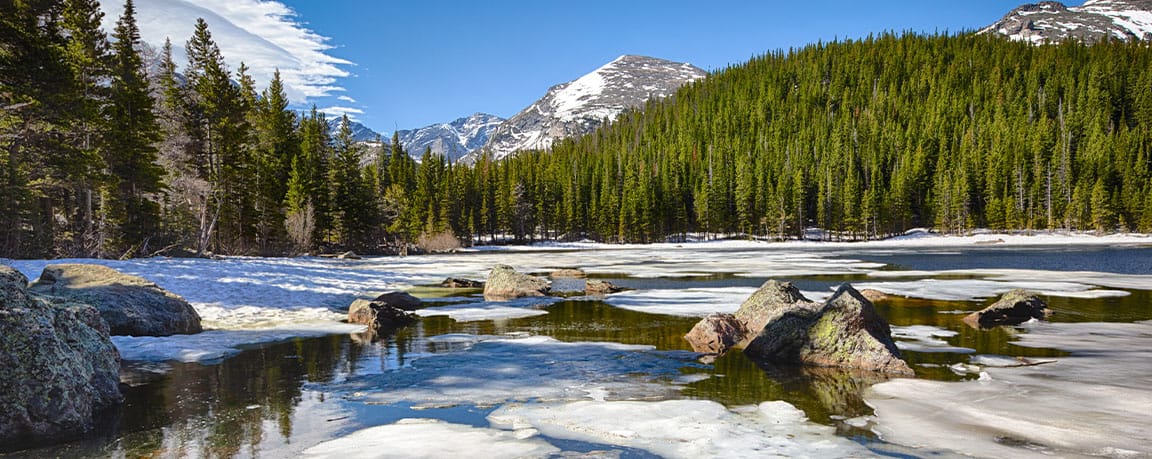
Colorado Wedding Laws
Drafted and last reviewed for accuracy by the Colorado marriage law team at the Universal Life Church Ministries on
The issuance of marriage licenses and certificates falls within the purview of state law. Legislators in the Colorado General Assembly have drafted a comprehensive collection of marriage-related laws. If you are planning to have your wedding in Colorado or to officiate one there, you must understand the Centennial State’s marriage requirements. Continue reading for in-depth answers to some common questions about Colorado’s marriage rules.
How to Become a Wedding Officiant in Colorado
If a minister wants to perform a marriage ceremony in Colorado, he or she must meet certain minimum requirements. While the minister does not need to be a resident of Colorado, he or she must be at least 18 at the time of the ceremony.
Colorado law allows ministers with online ordination to perform marriage ceremonies. This makes the Universal Life Church’s Classic Wedding Package ideal for both ministers and marrying couples. If the clerk and recorder’s office requires additional information from the minister, a county official is likely to contact the minister after the ceremony takes place.
Getting Married in Colorado
In Colorado, the officiant and the couple enjoy wide latitude to create the ceremony they want. In fact, the only required sections are consent and the pronouncement. Provided the couple agrees to the marriage and the officiant pronounces them married, the ceremony likely satisfies state law.
Colorado law does not require marriage ceremonies to have witnesses. Likewise, if either half of the couple is serving a military deployment, proxy marriage is possible.
How to Get a Colorado Marriage License
Because obtaining a marriage license is a legal requirement, the couple must secure one before saying “I do.” The law does not require both individuals to appear in person to request the license, however. Only one person must do so.
To apply for a marriage license, the couple must submit a form to the county clerk and recorder’s office. There is a $30 filing fee. With the application, the applicant must submit identification documentation, such as a passport, driver’s license, birth certificate or other required evidence.
Unlike many other states, Colorado does not require copies of previous divorce decrees. They also do not ask applicants for marriage licenses to undergo a blood test.
Once the couple obtains a marriage license from a county clerk and recorder, the marriage may take place anywhere in Colorado. That is, the marriage license is not exclusive to the county of issuance.
Applying For a Marriage License in Colorado
In Colorado, it is possible to have a religious marriage ceremony or a civil one. Making the selection before applying for a marriage license is important. After all, Colorado law requires marrying couples to disclose whether they are applying for a religious or civil license.
If a Universal Life Church minister intends to perform the ceremony, the license application should indicate the ceremony is religious. This is true even if there are no religious elements to the ceremony, as the minister distinction is the pertinent part.
Colorado does not have a mandatory waiting period between license application and issuance. This makes the Centennial State an ideal marriage location for out-of-state couples. Nevertheless, the earliest a couple may apply for a marriage license is 35 days before the ceremony.
After the ceremony concludes, the couple has 65 days to return the completed and signed marriage license to the county clerk and recorder.
Colorado Marriage Requirements
Before walking down the aisle, couples who want to marry in Colorado must obtain a marriage license. For state authorities to issue one, both members of the couple must be at least 18. Nevertheless, state law allows individuals between the ages of 16 and 18 to marry with the consent of a legal guardian.
While first cousins may legally wed in Colorado, no closer kin may apply for a marriage license or enter a valid marriage. Same-sex marriage is legal in the state, so members of the LGBTQ+ community may typically marry the person they choose.
Finally, Colorado law does not require marrying couples or officiants to be residents of the state. That is, to marry in Colorado, a couple can be from anywhere in the U.S. or abroad.
Finalizing the Union
After the ceremony is over, the parties complete and sign the marriage license. Then, the couple must return the completed license to the clerk and recorder within 65 days. To avoid additional fees, all information on the completed marriage license must be correct.
The officiant should also keep a written record of the ceremony along with a copy of his or her credentials.
Whether you are an officiant or a marrying couple, understanding the legal requirements and taking some final steps are critical for having a legal marriage in Colorado.
Learn How to Perform a Colorado Wedding
Become an OfficiantWant to Learn More about Ministry in Colorado?
Explore the CO OrdinationBecome a Legal Minister Online
Get Ordained Now